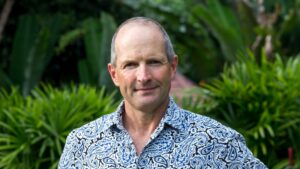
As a personal trainer, I have a responsibility to my clients to provide them with the best advice based on up-to-date science.
I recently watched a video interview by some young personal trainers on #wastebook, and the advice they provided about health and nutrition prompted me to write this article. This is a small section of the full article. If you want to learn more and read the full article, simply click here.
As far as I’m concerned, the advice some trainers are providing and the intense training they are putting their clients through, as though everyone is the same, is based on old principles and old science.
The problem is that almost anyone can become a personal trainer these days. With government funding supporting these courses and the number of gyms supporting these personal trainers, I think it’s getting worse.
In my opinion, there is not enough content covering nutrition on the accredited personal trainer's courses in Australia – certainly not enough to provide the proper advice to someone who has had weight problems for years. Because of this, the advice provided can actually do more damage than good.
This includes injuries through high-intensity workouts that often lack appropriate techniques and elevated cortisol (stress hormone) levels, day after day, session after session, which often leads to adrenal fatigue, weight gain, self-doubt, depression, anxiety, and binge eating.
As a fully qualified personal trainer, group fitness instructor, advanced level 1 Les Mills RPM instructor, spin coach, USA and Australian triathlon coach, and currently ranked number one in my 50-54 age group in the AWA Ironman 70.3 rankings, I do know a little about exercise and nutrition (about me).
However, I don’t pretend to know it all, and I turn to real experts in their fields for guidance.
With help from these experts, I’m going to correct some nutritional advice provided by some young personal trainers. After four years of restructuring my approach to nutrition and reading an extensive list of books, I have decided to collate much of what I have learned in order to save you four years of your own research.
If after reading this article, you do decide to fundamentally challenge your beliefs on training and nutrition (thanks, Prof. Noakes), you should book some time to talk to me.
Dr. Jason Fung says that the reason why traditional societies can eat high-carb diets without showing signs of obesity or diabetes is that these carbs are unrefined and unprocessed, which means they are very high in fiber, which is the protective mechanism of the food.
Carbohydrates in their natural, whole, unprocessed form always contain fiber. However, dietary proteins and fats contain little to no fiber because our bodies have evolved to digest these foods without the need for them.
For instance, the Okinawans base their diet on sweet potatoes and consume an estimated 80% of their calories as carbohydrates.
The fiber content in the sweet potato protects against obesity. Until recently, they were one of the longest-living peoples on earth. The Kitavans of New Guinea followed a diet estimated to be close to 70% carbohydrate with no evidence of ill health.
Traditional Italians make their own pasta from flour that they grind themselves – this flour still contains fiber, fat, and protein. It is the introduction of the Western diet into these traditional societies that have caused chaos.
Here is a summary of the impact of the Western diet.
Dr. Tom O’Bryan says: “No human has the enzymes to fully digest the proteins of wheat, rye, and barley. These grains will cause inflammation and intestinal permeability every time they are eaten.
Dr. Alessio Fasano conducted research at Harvard University and recently published a paper that showed that gluten in wheat causes intestinal permeability in every human.
His team studied four populations; recently diagnosed coeliacs, coeliac patients in remission, non-coeliac gluten sensitivity patients, and patients with no sensitivity to gluten, amazingly in his conclusion he states that “increased intestinal permeability after gliadin exposure occurs in all individuals.”
Prof. Noakes says: “Humans do not have any essential requirement for dietary carbohydrates. Humans cannot survive unless they include fat and protein in their diets.
But carbohydrate serves only two functions in humans – it must be either burned as an energy fuel or stored as fat; it cannot be used to build any of the body’s structures.”
Prof. Noakes says: “Weight gain cannot occur without the ingestion of more calories than are needed by the body. In this sense the energy balance model of obesity is correct. But the point is that the over-ingestion of calories cannot occur if the brain appestat is functioning properly, as it did until 1980.
The appestat of the obese must fail because it is especially susceptible to the appetite-stimulating effects of high-carbohydrate foods, especially those found in modern processed foods that are designed with the single goal that they are highly addictive.
It is those addictive foods that have invaded the human food chain in the past 30 years.”
Ben Greenfield says: “Eating less does not create the need to burn body fat. Instead, it creates the need for the body to slow down. Contrary to popular opinion, the body hangs on to body fat. Instead, it burns muscle tissue, and that worsens the underlying cause of obesity.
Only as a last resort, if the body has no other option, it may also burn a bit of body fat. When you are starving your metabolism wants more stored energy and body fat is the greatest source of stored energy – so it holds onto it.
Your tissues burn a lot of calories so when your metabolism thinks you’re starving it gets rid of calorie-hungry muscle tissue. Studies show that up to 70% of the weight lost while eating less comes from burning muscle – not body fat.”
Tim Rice says: “The old disproven “calories in vs. calories out” model of weight loss simply doesn’t work and does not account for the differing hormonal effects of varying macronutrients.
It is much more likely that an overweight person has eaten too much of the wrong kinds of foods and unfortunately, due to misguided nutritional advice given out by most healthcare providers, they don’t even know what the wrong kinds of foods are.”
Prof. Noakes says: “Persons with insulin resistance have a reduced capacity to burn carbohydrates as fuel both during exercise and when at rest. Humans differ in the ease with which they will gain weight when exposed to a high-carbohydrate diet.”
Tim Rice says: “Obesity is a slow, degenerative, metabolic process of gradually increasing degrees of insulin resistance.
No one just wakes up one day to discover that they are obese. The simplistic “eat less, move more = weight loss” was conceived under the notion that all calories behave the same in our bodies.”
Dr. Jason Fung says:
Dr. Aseem Malhotra says that “it’s about the quality of the research – Cambridge Medical Research Council did a very big study, with over 600 thousand participants, which concluded that saturated fat could be part of a healthy diet as long as you’re getting the rest of it right.
Cut out refined carbs and sugar, and have vegetables, olive oil, nuts, oily fish, and some meat. Fat is very satiating and has the least impact on insulin responses.”
“Too much-refined carbohydrates — white bread, white rice, potato products — all the foods that crept into our diets as we’ve followed the low-fat craze has undermined our metabolism.
In other words, the high-carb, low-fat pattern of eating caused us to become hungrier and burn off fewer calories. It’s a double-whammy for weight gain. We’ve been told for decades that if you don’t want fat on your body, don’t put fat into your body. It’s a very appealing notion, but the problem is it’s wrong,” says Dr. David Ludwig.
In conclusion, it’s important to look at all aspects of the human body when it comes to health and exercise. Below, I have provided a summary of the key points to consider before embarking on a health and lifestyle change.
Each individual is unique, and although one individual may be able to utilize carbohydrates effectively, another may not. Listen to your body and think about how your body reacts to what you feed it. Choose your carbohydrates wisely – select whole, unprocessed carbs with fiber instead of refined carbs.
If you’re going to be eating carbohydrates, make sure that you’re using them for fuel. Otherwise, they will be stored as fat, particularly if you’re insulin-resistant. Avoid wheat at all costs, as it causes damage to all individuals.
Exercising more and eating less is just going to make you hungry, which in the long run is an unsustainable approach because eventually, you’ll revert to your previous way of eating and put all of the weight back on, and possibly more.
This happens because the body reacts to weight loss by trying to return to its original set body weight.
The first step to getting lean is to get the appestat working again.
You’ll know that it’s working correctly because you won’t be hungry. If you’re lean, it means that your appestat is functioning perfectly. If you are overweight, it’s because your appestat is not working.
Eating processed carbs distorts the appestat and tells you to eat more than you should, which makes you put on weight and keeps you hungry.
Reduce the number of carbs in your diet and increase the fat to keep you satiated. “Banting works so effectively in so many because it quietens the appestat so that calorie consumption drops without hunger and weight is lost effortlessly.” – Prof. Noakes
I’ve helped many people lose weight and keep it off by following the above principles. Let me guide you to your optimal health and ideal weight.
The approach I take is based on the Real Meal Revolution’s four-phased approach to weight loss as a certified low-carb, healthy fats coach.
I include one-on-one coaching sessions that will help you change your mindset to really optimize your life.
https://idmprogram.com/fibre-reduces-insulin-how-to-lose-weight-x/
https://www.ncbi.nlm.nih.gov/pubmed/25734566
https://www.ncbi.nlm.nih.gov/pmc/articles/PMC3384703/
https://www.glutenfreesociety.org/dr-fasano-on-leaky-gut-syndrome-and-gluten-sensitivity/
https://dash.harvard.edu/bitstream/handle/1/17820815/4488826.pdf?sequence=1
https://bengreenfieldfitness.com/2013/12/diet-myth-news-flash-eating-less-cause-fat-loss/
https://realmealrevolution.com/real-thinking/merits-of-a-mediterranean-diet
https://www.nytimes.com/2016/09/13/well/eat/how-the-sugar-industry-shifted-blame-to-fat.html?_r=2
https://www.nytimes.com/2016/05/02/health/biggest-loser-weight-loss.html
https://www.youtube.com/watch?v=1CHGiid6N9Q
https://andreobradov.wpengine.com/happy-ending/
https://andreobradovic.com/why-do-we-get-fat/
https://andreobradovic.com/fat-adaptation-for-endurance-performance/
Real Meal Revolution Book pages 269, 270, 271

Andre Obradovic is an ICF Leadership PPC Level Coach, A Primal Health Coach, a Certified Low Carb Healthy Fat Coach, & a Certified Personal Trainer. Andre is also a Founding member of the Dr. Phil Maffetone MAF certified Coach. He is an Ambassador for the Noakes Foundation, and a regular subject matter expert lecturer for the Nutrition Network (a part of the Noakes Foundation) Andre has completed 16 x 70.3 Ironmans and in 2017 he competed in the 70.3 Ironman World Championships. He has completed 18 Marathons and over 30 Half Marathons. Andre currently focuses his athletic competition on Track and Field with the occasional Marathon.
Very nice article! I'm working on my CBC now. Keep up the terrific work and messaging. Cheers!
Amor thanks very much if I can help you let me know....
This is the first time I have read advice from a PT which acknowledges LCHF/banting as a serious option. Wow, very impressed. Your observations are entirely correct, as I too have experienced for the last 16 months of following this way of eating. It is satiating, easy, natural, and I will be doing it for the rest of my life, no problem. Now for the first time a normal weight (healthy waist/hip and waist/height ratio), normal body fat % (28% from 66%), I have maintained this for three months so far, a miracle, as I have been a yo-yo dieter for over forty years (low fat/high carb - didn't work for me).
Thanks so much for your very kind comments AJ, yes I am going against the Grain 🙂 Please share the article as much as you like. What else would you be interested in me writing about?